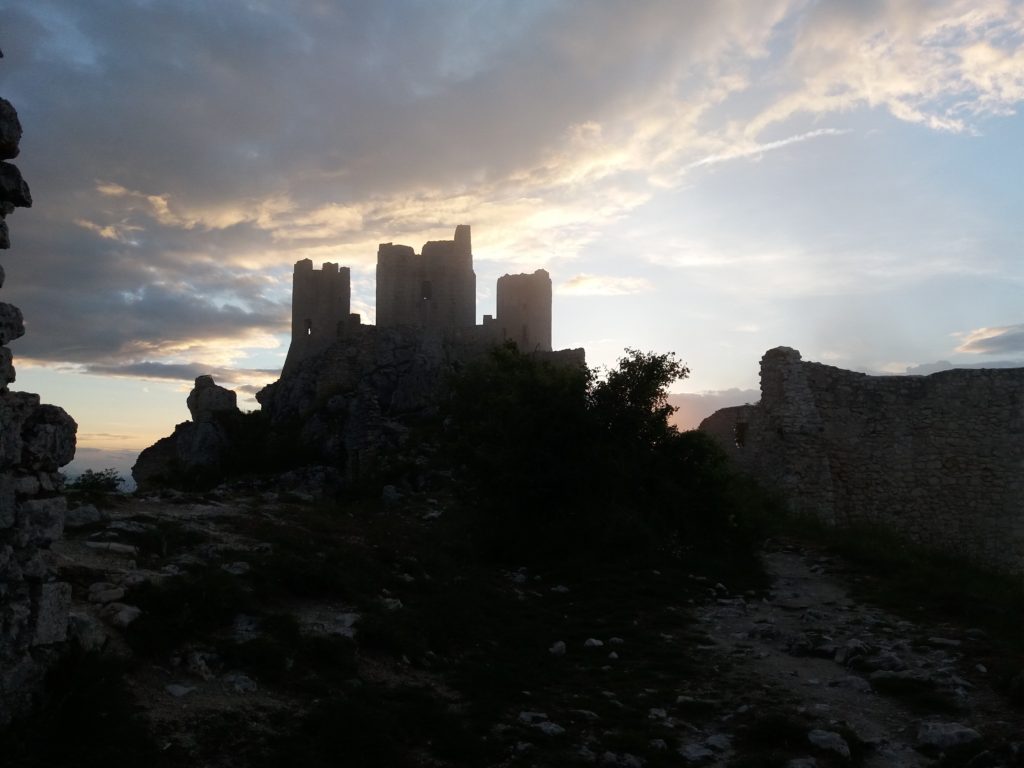(BioMolecular Electronics)
CECAM-PSI-K conference, Madrid, 27th -31st August 2018
Organizers: Linda A. Zotti, Juan Carlos Cuevas, Rubén Pérez
Venue: Universidad Autónoma de Madrid, Spain
Sponsors: PSI_K & CECAM (83%), Universidad Autónoma de Madrid (11%), IFIMAC (5%) and Catedra UAM-Fujitsu (2.5%)
BIOMOLECTRO was a very exciting event which took place this summer in Madrid. The aim of the conference was to bring together theoreticians and experimentalists working on the subject of electron transport through biomolecules such as proteins, peptides or DNA, as well as through bio-inspired devices and systems like bacterial nanowires. The conference was very successful, joining many world-leading scientists and proving that the field of biomolecular electronics is most certainly flourishing. This is thanks to the plethora of rich physical and chemical properties biomolecules have to offer (such as redox and optical functionalities as well as specific chemical recognition and self-assembly ) and to their potential to be employed in nanoscale devices.
The key merit of this conference was the unique joining of researchers from the fields of electron transport in molecular electronics, electron transfer in biology, and biosensors, and gathering their varied expertise and knowledge to produce many new ideas and directions. Please see below for the list of speakers and titles of their talks as well as the abstract book. Continue reading Conference Report: BIOMOLECTRO (BioMolecular Electronics) CECAM-PSI-K conference



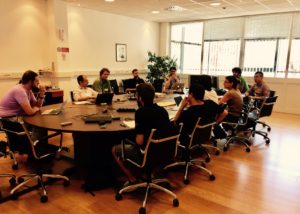
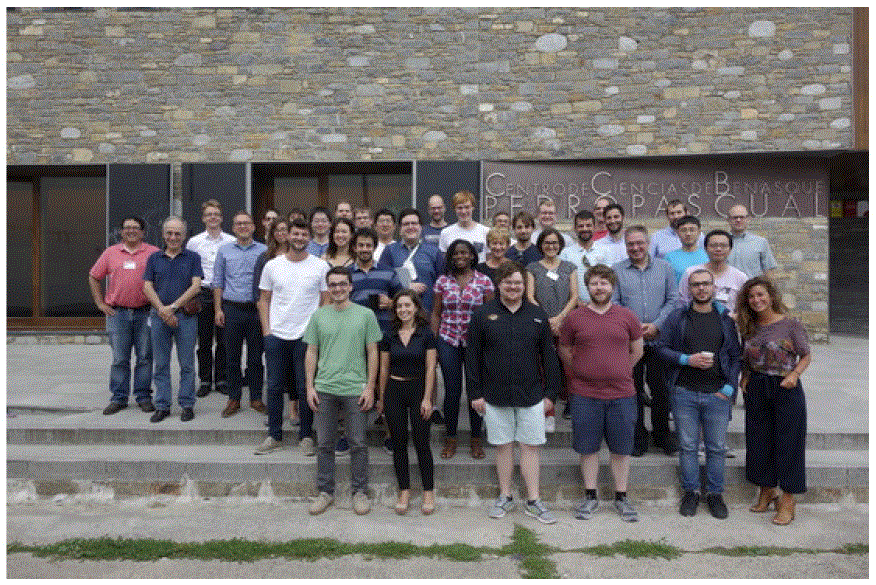


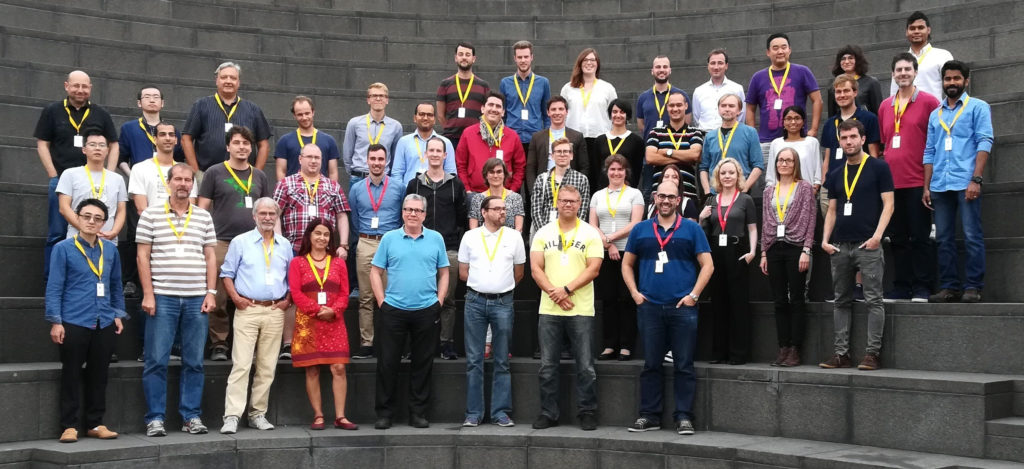
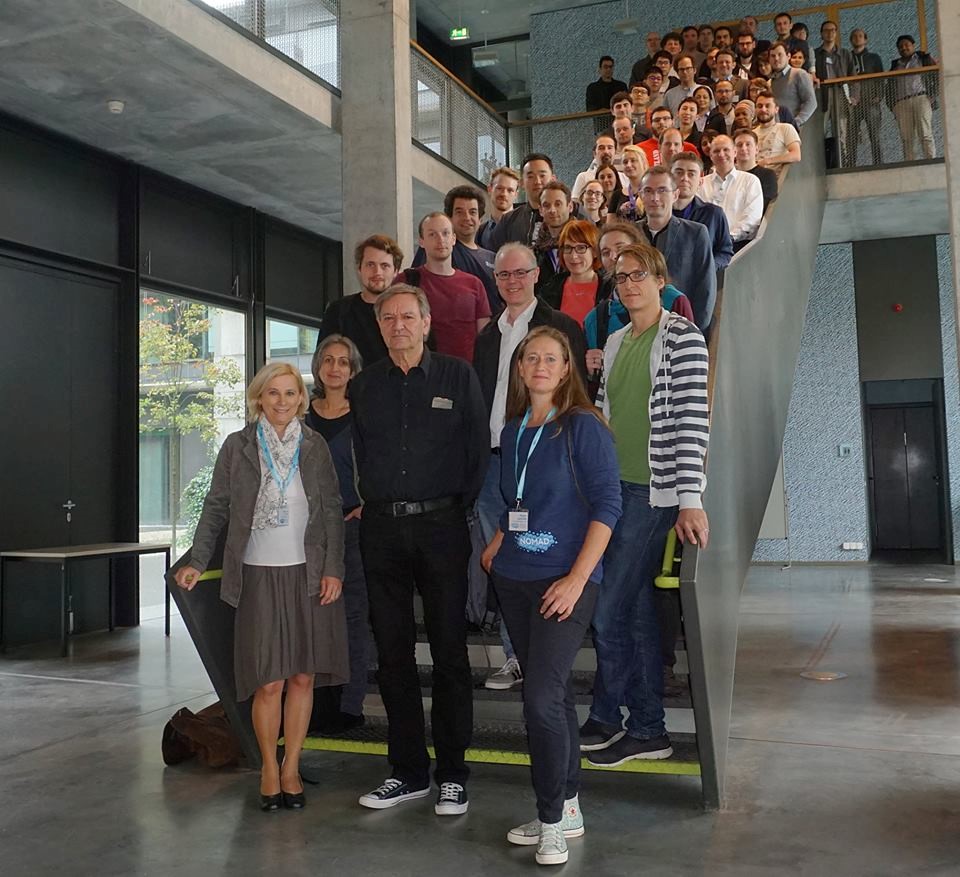 This workshop did not only demonstrate NOMAD’s achievements, but also taught the usage of the wide range of NOMAD tools, in order to take advantage of these developments and the large amount of data gathered by this project. The eight sessions were organized by topics, covering
This workshop did not only demonstrate NOMAD’s achievements, but also taught the usage of the wide range of NOMAD tools, in order to take advantage of these developments and the large amount of data gathered by this project. The eight sessions were organized by topics, covering